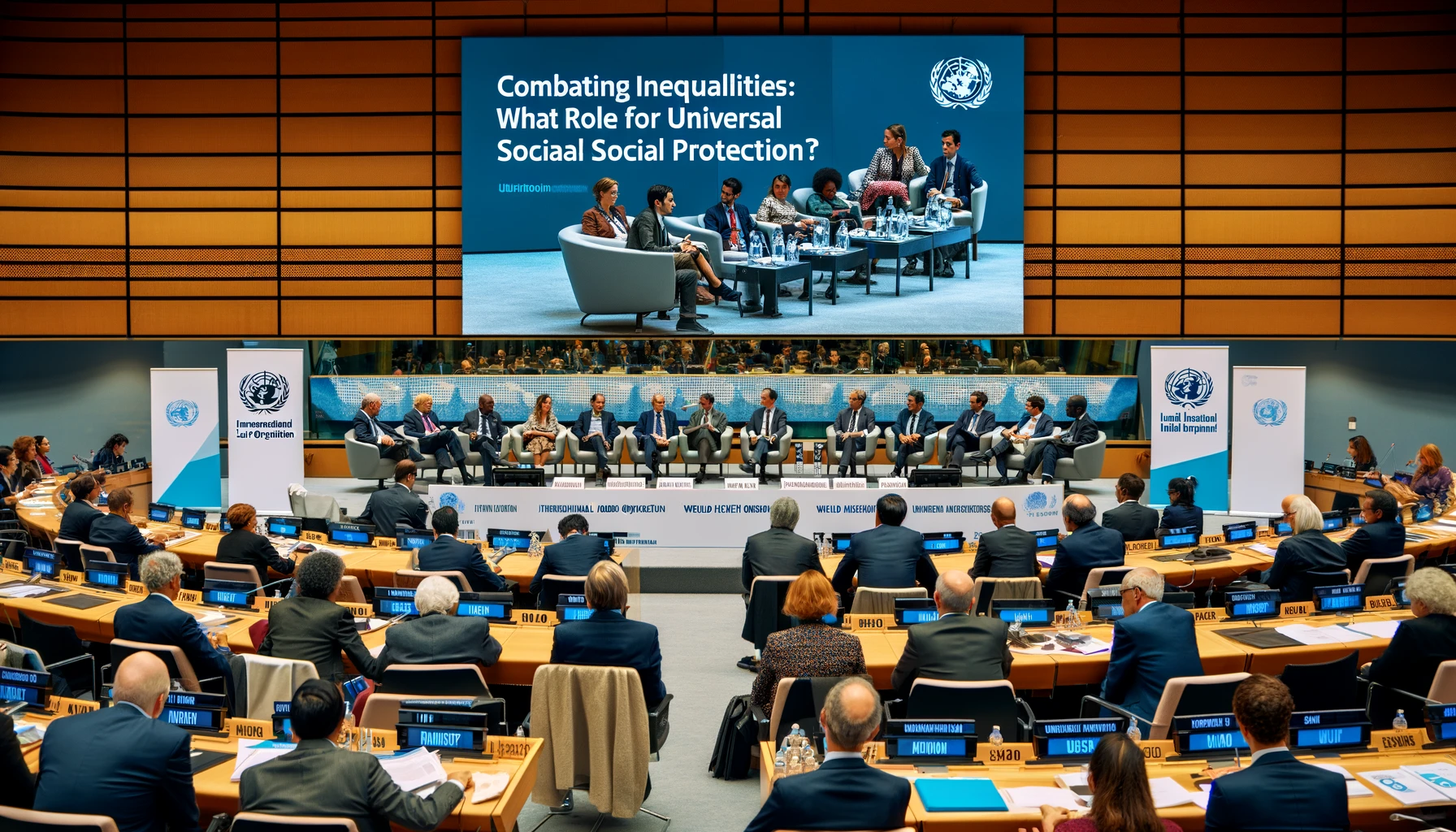ILO Report Highlights Urgent Need for Universal Social Protection to Address Global Inequalities
The discussion centered on the critical role of universal social protection in mitigating income inequality, financing strategies, and the broader structural causes of disparities.

In a world grappling with growing economic disparities, the International Labour Organization (ILO) has launched a working paper titled Combating Inequalities: What Role for Universal Social Protection? The publication, released in late 2024, was unveiled at an expert panel event featuring representatives from the ILO, the World Health Organization (WHO), and the United Nations Research Institute for Social Development (UNRISD). The discussion centered on the critical role of universal social protection in mitigating income inequality, financing strategies, and the broader structural causes of disparities.
Growing Global Income Disparities
The ILO report emphasizes the severity of income inequality worldwide, revealing that households in the lower 50th percentile of income distribution control just 25% of total earnings, compared to 30% held by those in the 90th percentile. These stark disparities illustrate the widening economic divide and the need for policies that foster more equitable income distribution.
During the panel discussion, Shahra Razavi, Director of the Universal Social Protection Department at the ILO, moderated the session and delivered opening remarks, emphasizing that addressing inequalities requires a holistic and sustained approach. Panellists included Sudhvir Singh, Unit Head for Equity and Health at WHO; Katja Hujo, Head of Bonn Office and Senior Research Coordinator at UNRISD; Helmut Schwarzer, Head of the ILO’s Public Finance, Actuarial Services and Statistics (PFACTS) Unit; and Umberto Cattaneo, Public Finance Specialist at ILO’s Universal Social Protection Department.
Structural Causes of Inequality and Policy Responses
UNRISD’s Katja Hujo underscored that inequality is deeply rooted in historical injustices, including colonialism, economic exploitation, and resource extraction. These structural factors continue to drive modern inequalities, which in turn exacerbate crises such as poverty, unemployment, and economic instability.
Hujo stressed that economic inequality is not just a symptom but also a driver of broader societal problems. She highlighted the significance of social policies, particularly social protection, in addressing inequalities related to gender, race, ethnicity, disability, and citizenship status. Furthermore, she noted that upcoming global forums, such as the 4th International Conference on Financing for Development and the Second World Summit for Social Development, are recognizing the necessity of reducing inequalities through universal social protection and progressive domestic resource mobilization.
Health and Economic Outcomes Linked to Social Protection WHO’s Sudhvir Singh elaborated on the connection between economic inequality and health disparities. He pointed out that lower-income populations tend to experience worse health outcomes, including reduced life expectancy, higher infant mortality rates, and increased incidence of metabolic and mental health disorders. Singh emphasized that universal social protection, alongside robust public services such as early childhood education and universal healthcare, is vital for fostering health equity.
"Income security is the single largest contributing factor to self-reported health. Without economic stability, individuals struggle to access necessary healthcare, education, and essential services, perpetuating cycles of poverty and poor health outcomes," Singh explained.
Social Protection as a Tool for Reducing Income Inequality Helmut Schwarzer from the ILO’s Public Finance Unit highlighted the direct correlation between higher social protection spending and reduced income inequality. He noted that contributory pensions, which account for the largest portion of social protection expenditures in many nations, have the most significant impact on reducing income disparities.
"On average, countries that allocate a higher percentage of GDP to social protection benefits also achieve a larger reduction in income inequality. This illustrates the pivotal role of well-funded social protection programs in fostering economic equity," said Schwarzer.
The Role of Taxation and Social Insurance Contributions The discussion also examined the role of tax policy in financing social protection and its impact on income distribution. Umberto Cattaneo from the ILO’s Universal Social Protection Department analyzed data from 25 countries, revealing that while personal income taxes contribute to reducing inequality, their effect is significantly weaker than that of direct social protection benefits.
In 23 out of 25 countries studied, personal income taxes had a redistributive effect, though in 14 of these cases, income inequality was reduced by less than 5%. This finding suggests that while taxation is an important tool, it alone is insufficient to achieve substantial reductions in inequality.
Cattaneo also addressed the role of social insurance contributions in financing social security systems. While these contributions enable the provision of contributory benefits, single-rate social security taxes can be regressive, disproportionately burdening lower-income earners. He pointed to wealth taxes—currently underutilized in most countries—as a potential mechanism to significantly reduce income inequality.
A Holistic Approach to Reducing Inequality Despite the substantial role that social protection plays in income redistribution, the panellists agreed that tackling inequality requires a multifaceted policy approach. Shahra Razavi emphasized that achieving economic equity goes beyond social protection systems.
"Reducing income inequalities cannot be left to social protection systems alone. It requires a wide range of integrated public policies, from access to quality education and skills training to labor protection, wage policies, and employment creation strategies. Additionally, macroeconomic policies that stimulate inclusive growth and investments in high-quality public services are essential in ensuring fairer primary income distribution," Razavi concluded.
Conclusion The ILO’s latest working paper and the expert discussions at the launch event reinforce the urgent need for universal social protection to address rising global inequalities. While social protection programs have a demonstrable impact in reducing income disparities, they must be complemented by broader economic and social policies. Governments worldwide must prioritize progressive taxation, labor market reforms, and increased investment in public services to create a more equitable and resilient global economy.










